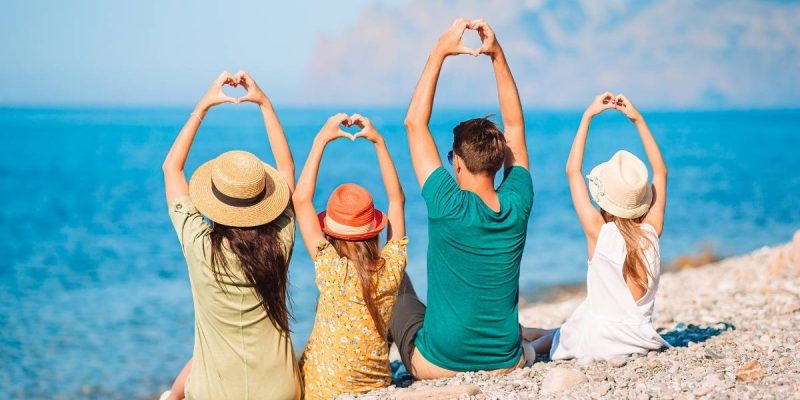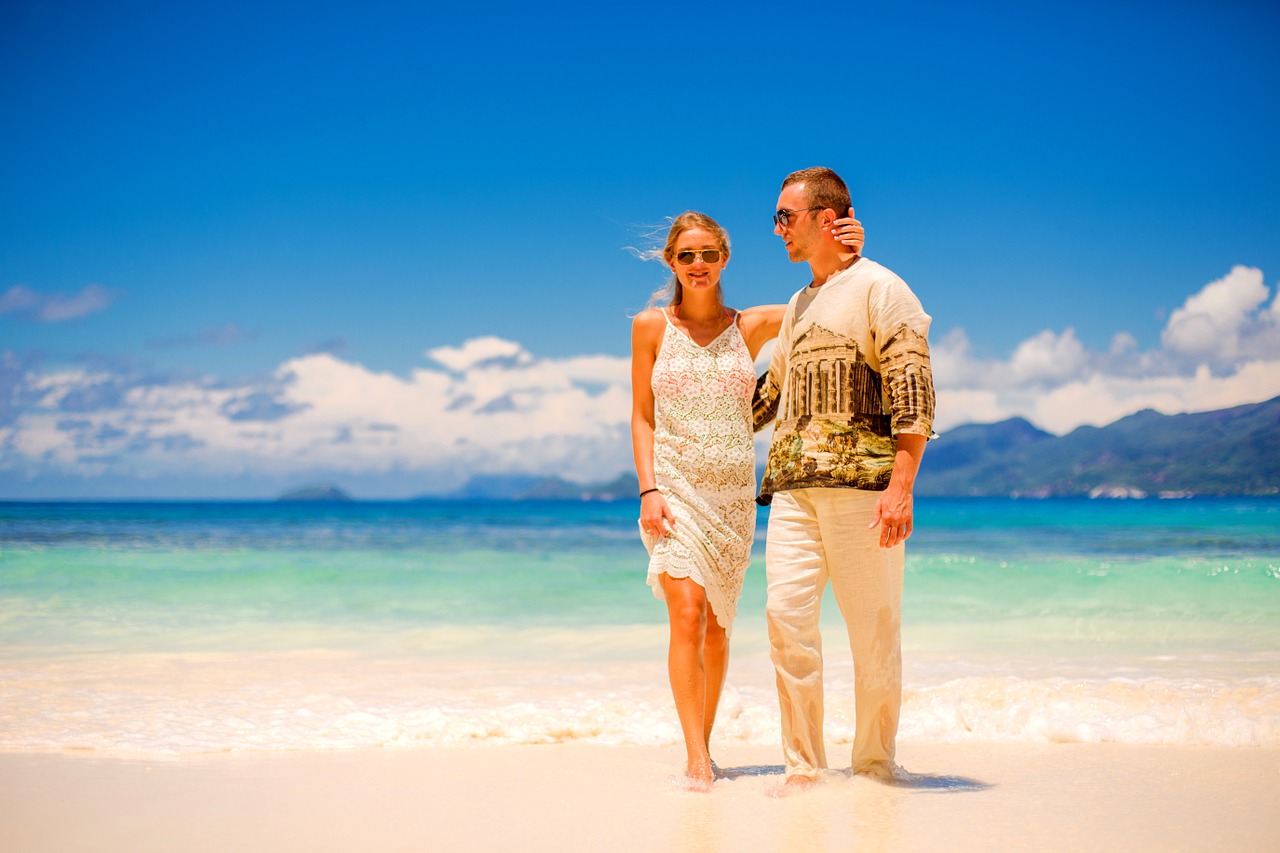
Vacations are more than just a break from daily life; they are essential for maintaining mental health, deepening personal relationships, and exploring new cultures. The keyword vacation represents an opportunity to rejuvenate the mind, body, and soul while discovering new experiences and perspectives. Planning a vacation thoughtfully can transform it from a mere trip into a transformative journey. In this comprehensive guide, we delve into everything from choosing the right destination to optimizing your travel experience for maximum enjoyment and long-term benefits.
Understanding the Importance of Vacations
Vacations are often seen as optional luxuries, but research shows they provide significant mental, emotional, and physical benefits. Taking time off allows individuals to detach from work stress, resulting in improved productivity and creativity upon return. Extended breaks can also enhance emotional well-being by reducing burnout, promoting relaxation, and strengthening relationships.
Mental and Emotional Benefits
- Stress Reduction: Engaging in leisure activities and escaping everyday pressures helps lower cortisol levels, promoting relaxation and mental clarity.
- Enhanced Creativity: Experiencing new cultures and environments stimulates the brain, leading to improved problem-solving skills and innovative thinking.
- Emotional Bonding: Traveling with family or friends creates shared experiences that deepen relationships and foster lasting memories.
Physical Health Advantages
- Improved Sleep Patterns: Breaking away from daily routines can help reset sleep cycles and improve overall sleep quality.
- Boosted Immunity: Reduced stress levels during vacation periods support immune system function, lowering the risk of illnesses.
- Active Lifestyle: Many vacation activities, such as hiking, swimming, or sightseeing, naturally encourage physical activity, promoting cardiovascular health.
Choosing the Right Vacation Destination
Selecting the perfect vacation destination is crucial for maximizing enjoyment. The decision should align with personal interests, budget, and the type of experience desired.
Types of Vacation Destinations
- Beach Retreats: Ideal for relaxation, sunbathing, and water sports. Destinations like Maui, the Maldives, or the Caribbean are popular for their pristine beaches and luxurious resorts.
- Adventure Vacations: Perfect for thrill-seekers who enjoy hiking, mountain climbing, rafting, or exploring wilderness areas. Destinations like Patagonia, New Zealand, and the Swiss Alps offer unparalleled adventure opportunities.
- Cultural and Historical Trips: Cities rich in history, art, and traditions, such as Rome, Kyoto, or Cairo, provide immersive experiences for travelers seeking intellectual and cultural enrichment.
- Wellness Retreats: Focused on mental and physical health, these retreats often include yoga, meditation, spa treatments, and healthy culinary experiences. Bali, Sedona, and Kerala are top wellness destinations.
Factors to Consider
- Budget: Assess the overall cost, including travel, accommodation, meals, and activities. Budget planning ensures a stress-free experience.
- Climate and Seasonality: Check weather patterns and peak tourist seasons to avoid overcrowding or unfavorable conditions.
- Travel Accessibility: Consider transportation options, visa requirements, and local infrastructure for convenience and safety.
- Personal Interests: Tailor your destination choice to your hobbies, whether it’s culinary exploration, adventure sports, or cultural immersion.
Planning Your Vacation Itinerary
A well-structured itinerary ensures a balanced mix of relaxation, exploration, and entertainment without feeling rushed or stressed.
Steps to Create an Effective Itinerary
- Prioritize Experiences: Identify must-see attractions and activities, then organize them logically to minimize travel time between locations.
- Incorporate Downtime: Avoid over-scheduling by including free periods for rest, spontaneous exploration, or leisure activities.
- Local Recommendations: Engage with local guides or residents for insider knowledge about hidden gems, dining options, and cultural etiquette.
- Flexible Planning: Allow room for adjustments due to weather, unforeseen circumstances, or personal energy levels.
Practical Tips
- Booking in Advance: Secure flights, accommodations, and popular activities early to avoid higher costs and limited availability.
- Travel Insurance: Protect against unexpected disruptions, medical emergencies, or cancellations.
- Packing Strategically: Pack versatile clothing, essential gadgets, and travel documents while keeping luggage manageable.
Maximizing Vacation Experiences
Beyond logistics, the true essence of a vacation lies in fully immersing oneself in the experience and creating lasting memories.
Cultural Immersion
- Try Local Cuisine: Sampling regional dishes enriches your understanding of local culture and culinary traditions.
- Engage with Locals: Conversing with residents provides authentic insights into customs, history, and daily life.
- Participate in Traditions: Attend festivals, ceremonies, or workshops to experience cultural practices firsthand.
Adventure and Exploration
- Outdoor Activities: Hiking, snorkeling, kayaking, and wildlife safaris provide physical engagement and unique perspectives.
- Urban Exploration: Discovering local neighborhoods, markets, and street art enhances your understanding of a city’s character.
- Photography and Journaling: Documenting experiences through photos or travel journals helps preserve memories and encourages reflection.
Wellness and Mindfulness
- Mindful Practices: Engage in meditation, yoga, or nature walks to foster mental clarity and emotional balance.
- Digital Detox: Limiting screen time during vacation promotes relaxation, presence, and authentic engagement with surroundings.
- Healthy Nutrition: Incorporating fresh, local, and nutritious foods supports overall well-being during travel.
Sustainable and Responsible Vacationing
Modern travelers increasingly prioritize sustainability and ethical tourism. Being a responsible tourist minimizes negative impacts on the environment and local communities.
Tips for Sustainable Travel
- Support Local Businesses: Choose accommodations, restaurants, and services owned by locals to boost the local economy.
- Reduce Waste: Avoid single-use plastics, carry reusable bottles, and responsibly dispose of trash.
- Respect Wildlife and Nature: Maintain safe distances from animals, avoid disturbing natural habitats, and follow trail regulations.
- Cultural Respect: Learn about and adhere to local customs, dress codes, and etiquette to foster positive interactions.
Common Vacation Mistakes and How to Avoid Them
Even carefully planned vacations can face hiccups. Being aware of common pitfalls helps ensure a smooth experience.
- Overpacking or Underpacking: Plan attire and essentials based on destination, weather, and activities.
- Ignoring Travel Advisories: Check local safety guidelines, health requirements, and travel warnings before departure.
- Over-scheduling Activities: Balance sightseeing with relaxation to prevent burnout.
- Neglecting Health Precautions: Stay hydrated, follow local food safety practices, and carry necessary medications.
The Role of Technology in Modern Vacations
Technology has transformed how people plan and experience vacations, offering both convenience and enhanced experiences.
Useful Travel Tools
- Navigation Apps: GPS and mapping apps simplify exploration in unfamiliar destinations.
- Travel Planning Platforms: Apps for itinerary management, accommodation booking, and activity reservations streamline planning.
- Language Translation Tools: Real-time translation apps bridge communication gaps in foreign countries.
- Augmented Reality Experiences: AR apps can provide historical context, interactive guides, and immersive experiences at tourist sites.
Digital Boundaries
While technology enhances travel, excessive reliance can detract from the experience. Setting limits, such as designated offline periods, encourages authentic engagement and mindfulness.
Post-Vacation Reflection and Benefits
The advantages of a vacation extend beyond the duration of the trip. Taking time to reflect on experiences enhances personal growth and future planning.
- Memory Preservation: Photo albums, journals, and digital scrapbooks help retain experiences for long-term enjoyment.
- Personal Growth: Exposure to new cultures, challenges, and perspectives fosters adaptability, empathy, and self-confidence.
- Enhanced Work Performance: Rested and rejuvenated individuals return to work with improved focus, creativity, and motivation.
FAQ About Vacations
1. How long should a vacation ideally last for maximum benefits?
Research suggests that vacations lasting 7–14 days provide significant mental and physical benefits, allowing adequate time for relaxation and exploration without causing post-vacation stress.
2. Is it better to travel solo or with companions?
Both options offer unique advantages. Solo travel promotes self-discovery, flexibility, and independence, while traveling with companions fosters shared memories, social bonding, and support.
3. How can I make my vacation more budget-friendly without compromising quality?
Consider off-season travel, stay in locally-run accommodations, use public transportation, and prioritize free or low-cost activities like hiking, beach visits, and cultural events.
4. What are the most essential items to pack for a vacation?
Essentials include appropriate clothing for the climate, travel documents, medications, reusable water bottles, chargers, and basic first aid items.
5. How can I reduce jet lag during long-haul trips?
Adjust your sleep schedule gradually before departure, stay hydrated, limit caffeine and alcohol, and expose yourself to natural sunlight upon arrival.
6. How do I ensure safety while exploring unfamiliar destinations?
Research local safety guidelines, avoid risky areas, keep valuables secure, and share your itinerary with trusted contacts.
7. What are the benefits of taking a staycation instead of traveling?
Staycations offer relaxation, exploration of local attractions, cost savings, and minimal travel stress while providing similar restorative benefits as traditional vacations.
Vacations are a vital component of a balanced life. Thoughtful planning, cultural immersion, wellness practices, and mindful exploration elevate a simple break into a meaningful experience. Whether seeking adventure, relaxation, or personal growth, embracing the full potential of a vacation ensures long-lasting enjoyment and transformative benefits.






